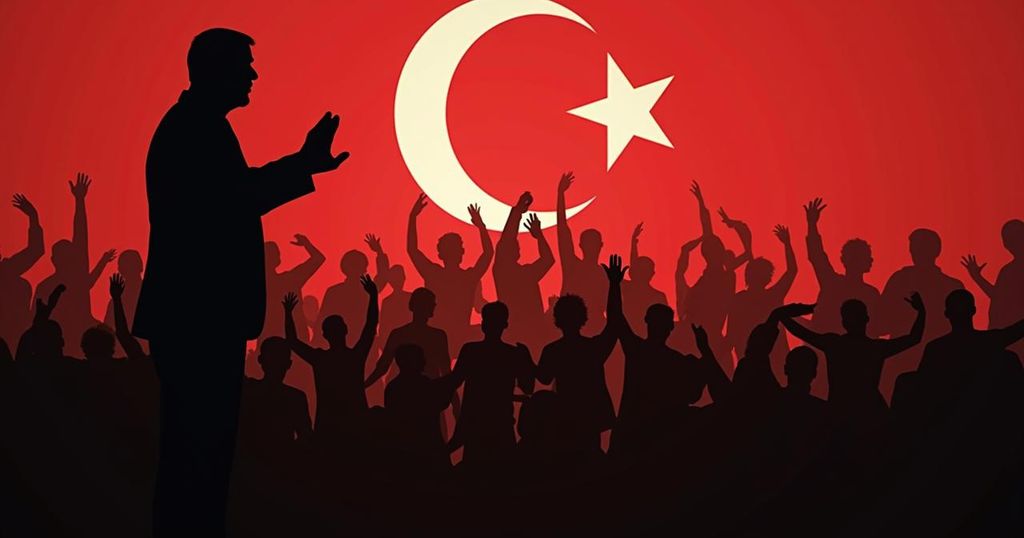Tunisia’s Presidential Election: A Foregone Conclusion Amidst Autocratic Rule

Tunisia’s presidential election on Sunday is poised to reinforce President Kais Saied’s rule, with significant opposition jailed and minimal political engagement evident. The confidence of the president is palpable, demonstrated by his inaction in presenting policy proposals and the notable absence of campaign activity, as Tunisia grapples with disillusionment following the Arab Spring uprisings.
The upcoming presidential election in Tunisia appears largely predetermined, with President Kais Saied on track to secure another term. The political climate surrounding the election reveals a stark absence of democratic engagement, as candidates are notably absent from the public sphere. The campaign lacks candidate posters, debates, or any semblance of excitement, indicating that Mr. Saied is supremely confident in his victory, having refrained from releasing any policy initiatives. The president’s leading opponent is currently incarcerated, facing multiple sentences that many assert are based on fabricated charges, one of which totals 12 years. This situation reflects a broader pattern, as numerous potential candidates face imprisonment or are subjected to house arrest. Many others have been disqualified from running altogether. This electoral process unfolds more than a decade after Tunisia’s mass protests, which successfully ousted long-time dictator Zine El-Abidine Ben Ali and sparked a wave of uprisings across the Arab world. However, faith in democratic governance has significantly eroded, and many Tunisians now perceive their reality as a deviation from democracy. Mr. Saied’s severe measures against dissenters and his escalating grip over the electoral process suggest a consolidation of autocratic power that consolidates his rule indefinitely. Souhaib Fercheche, a civic activist from the organization I Watch, emphasizes the lengths to which Mr. Saied is willing to go to maintain control, stating, “He’s willing to do anything it takes to stay in power — dividing Tunisians, prosecuting them, accusing them.” The initial aspirations for democracy and reform that followed the 2011 revolution have largely faltered, leaving many citizens feeling disenfranchised and doubtful of the promise of democratic governance.
The current political environment in Tunisia is a reflection of a significant shift from the hopes and aspirations that accompanied the Arab Spring in 2011. Tunisia was initially viewed as the success story of this revolutionary wave, transitioning toward democracy after the ousting of dictator Zine El-Abidine Ben Ali. However, the past decade has revealed profound disillusionment among the population, as the expected benefits of democratic governance have not materialized. With autocratic practices resurfacing under President Kais Saied’s regime, the upcoming election is characterized more by repression and intimidation of opposition than by a genuine democratic contest. This context informs the stark lack of enthusiasm surrounding the election, illustrating a populace that feels largely powerless and skeptical about their political representation.
In summary, Tunisia’s forthcoming presidential election starkly illustrates the decline of democratic ideals that initially emerged from the 2011 revolution. President Kais Saied’s overwhelming control over the political landscape, coupled with his strategic dismantling of opposition, suggests an electoral process devoid of true competition or legitimacy. The situation exemplifies a troubling trend towards authoritarianism in a nation that once held promise as a beacon of democratic change in the Arab world. The voices of dissent are silenced, leaving the electorate with a grim outlook as they approach the polls for what many see as a predetermined outcome.
Original Source: www.nytimes.com







